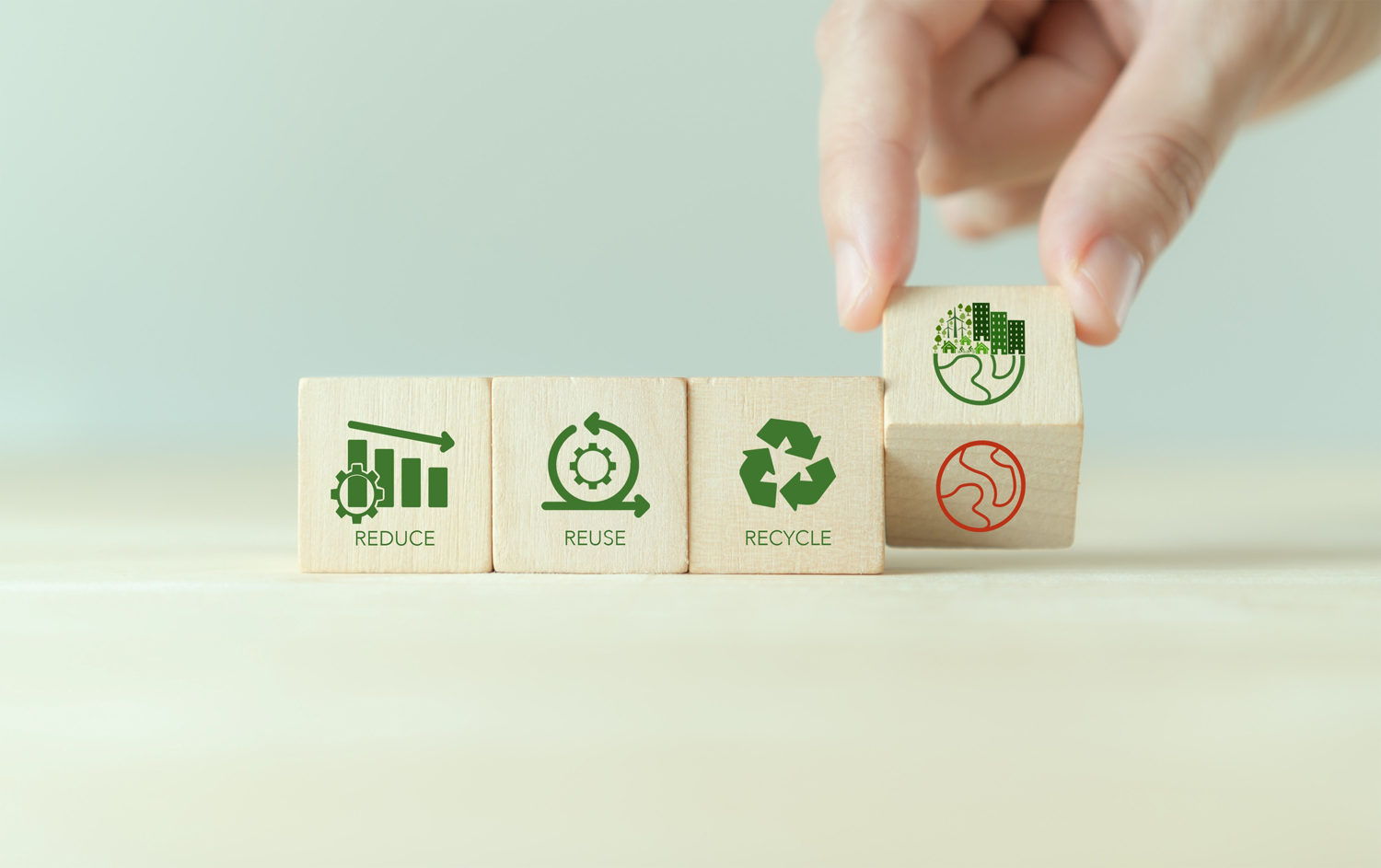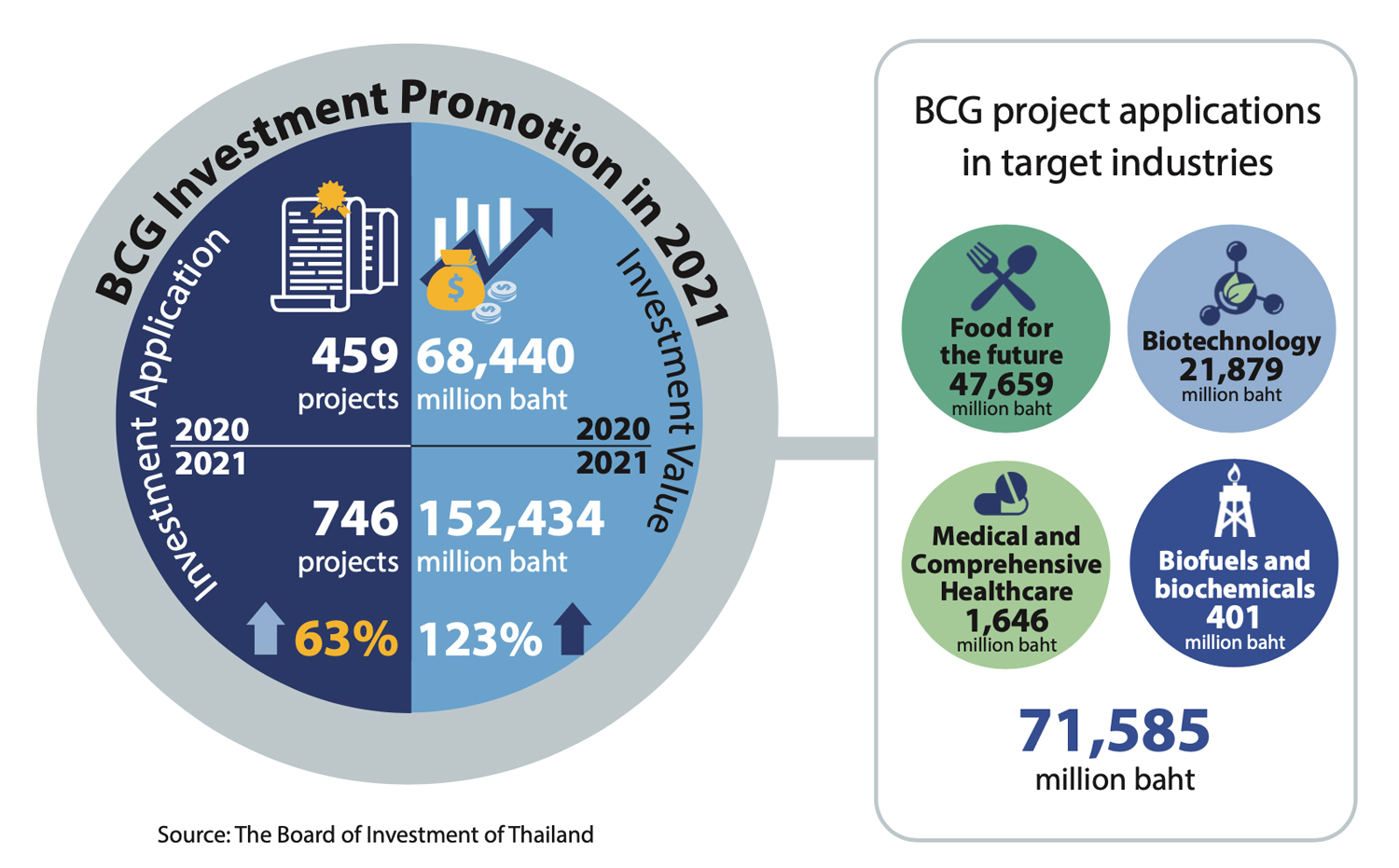
Climate change poses a serious threat to all countries, and is having a growing and unprecedented global impact. Recognising that no country is alone in this effort and that multilateral cooperation is needed, Thailand has demonstrated its commitment to addressing climate change by ratifying the United Nations Framework Convention on Climate Change (UNFCCC), the Kyoto Protocol, and the Paris Agreement.

Thailand is taking action to reduce its greenhouse gas emissions with a goal of reaching carbon neutrality by 2050 by embracing the Bio, Circular and Green Economy (BCG) model, showing a pathway to achieving sustainable economic development and a low-carbon economy. With the country’s rich natural resources, biological diversity, and leading agricultural production, the Thai government’s BCG model is focused on four sustainable industries: farm and food; healthcare and medical services; energy and biochemicals; and tourism and the creative economy.
As consumers and investors increasingly focus on environmental, social and governance (ESG) considerations, Thailand is moving quickly to adopt a comprehensive approach that incorporates science, technology, and innovation, along with supportive policies, and legal and financial measures. To reinforce the global actions being taken to tackle climate change, Thailand’s Board of Investment (BOI) is providing investment promotion incentives for a range of BCG activities, including biotechnology, biochemical production, biogas and biomass energy generation, food and animal feed production, and recycling facilities.
In 2021, the combined value of foreign and domestic applications for the BOI’s BCG investment promotions more than doubled to 152.4 billion baht from 68.4 billion baht

Developments have confirmed growing commitment on the part of investors to sustainable activities for an improved environment. For instance, last year, the BOI approved NatureWorks Asia-Pacific Co., Ltd’s project application to invest more than 15 billion baht to produce polylactic acid (PLA), a low-carbon-footprint polymer derived from agricultural feedstocks, reflecting Thailand’s growing strategic BCG position. With an effective BCG economy in place, the country’s gross domestic product is expected to increase to 200 billion baht within two years, driven by investment growth from both the public and private sector1.
To reinforce this effort and further drive BCG investment trends, the BOI recently approved a series of measures to encourage businesses to adopt digital technologies, conduct research and development (R&D), and more actively engage these sectors in human resource development (HRD). In addition to the incentives, the BOI is working with other government agencies and the private sector to create a supportive ecosystem for BCG businesses, including arranging a BCG Startup Investment Day Event and the Thai-German Business Forum: Strategic Partnership on the BCG Economy in the Eastern Economic Corridor (EEC) to further drive awareness, addressing climate change threats and achieving a more sustainable economy for Thailand.
1 National Science and Technology Development Agency of Thailand
